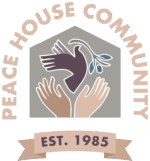In the aftermath of George Floyd’s death, I’ve heard a lot about systemic racism. As far as I can tell, though, no one is saying anything new. I first heard of systemic racism in university over 25 years ago, and I’ve heard it discussed consistently since then, and now I’m hearing it discussed more loudly. Unfortunately, and tragically, discussing “systemic racism” misses the point.
The system isn’t an impersonal force. It is made and controlled by people, by us. But of course, some of us have more power and control over the system than others. Those (including me) who have power and privilege need to recognize their (our/my) power and privilege and then do something with it. Systemic racism (or whatever other impersonal term you want to use) shields them/us/me from personal responsibility for not doing what we can to change the system. So instead of discussing systemic racism, we/I need to starting using “I” statements like:
- I will stop being scared of losing my privilege. I will accept that I don’t need a new flat-screen tv, a cabin up north or any of the other things I say I need. I will accept that working for equality may cost me a couple of creature comforts, but that I will not miss these unless I am incredibly selfish and materialistic. I will recognize that the victims of “systemic racism” live every day with far less than me, and I have not thought this was a problem. If it isn’t a problem for people to live at that level, it isn’t a problem for me to do with less.
- I will recognize that injustice happens every day, and that those who suffer injustice bring attention to it every day. They speak more loudly the more they are ignored. If they have to speak with protests, riots and destruction, it is because I didn’t listen.
- I will not blame a few bad police officers for the problem when the problem has existed for centuries in all sectors of society. I will face the fact that the problem is far bigger than a few people.
- I am going to support equal funding for all students in Minnesota, and if I live in one of the better funded, higher funded school districts, I will support allowing students from outside my district to attend. If this means that my child winds up having to attend a school in a district with lower achievement scores, I will help that district improve its outcomes. I recognize that my child has no inherent right to a better education than another child based on zip code.
- I will vote for individuals and causes that will tear down systemic racism. Voting for a healthy economy that creates poverty or security that terrorizes people doesn’t make sense.
- If I claim that I got where I am by hard work and not because anything was given to me, I will also admit that many people have worked harder than me in low-paying jobs with no benefits and unsafe working conditions but haven’t benefited in the same way that I have.
- If I hear myself saying that any of these changes are unfair to me or my family, I will admit that the world has never been fair, and that I have received more blessings and have a more luxurious life than almost anyone in history. I will realize that if life was fair I would watch my child starve to death during famine, or die during a plague, or be sold into slavery, or be blown to bits in a civil war, or waste away in a refugee camp, because that is what happens to millions of people every day.
- I will decide whether I will live out these “I” statements. I can be a hypocrite who talks about the need for change and decries the violence and destruction that results from an unjust system but doesn’t do anything to change it, or I can become involved in the day to day struggle to establish justice. I can wait until those who suffer get my attention through riots and destruction because that is the only thing that gets my attention, or I can join them in the struggle.
by Marti Maltby, Director Peace House Community – A Place to Belong
This article originally appeared in “The Alley,” the newspaper for the Phillips neighborhood of Minneapolis.
